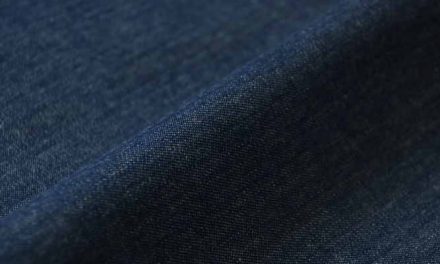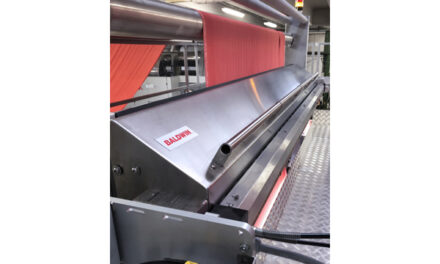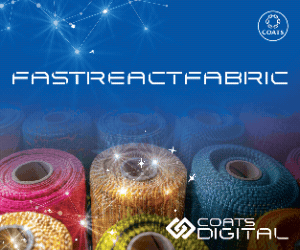
Circle-8 Textile Ecosystems has entered into a partnership with multifaceted recycling tech company Tomra to develop the first automated textiles sorting and pre-processing facility (ATSP) for non-reusable textiles in the UK. The scheme, which will be underpinned by a feasibility study for a facility that can eventually be scaled up, aims to address the 700,000 tonnes of non-reusable apparel and other textiles that are generated every year in the UK.
As a key member of the ACT UK, the 2023 consortium set up to industrialise textile sorting in the UK, Circle-8 says it is working with stakeholders along the textiles value chain to realise a circular textiles ecosystem across the country.
Its ambition is to build, own and operate the UK’s first large-scale polymer recycling plant for non-reusable textiles made from polyester and cotton by 2027, creating virgin equivalent circular raw materials for reintroduction into global supply chains. To supply the chemical textile recycling plant, Circle-8 says it is developing 25,000 tonne per year ATSP for non-reusable textiles and creating a blueprint for multiple facilities in the future.
Cyndi Rhoades, Co-Founder and CEO of Circle-8 Textile Ecosystems noted how the automated sorting and pre-processing of non-reusable textiles was crucial to enabling a truly circular textiles value chain by turning non-reusable textiles into high quality feedstock required by existing and emerging textile-to-textile recyclers.
“We know the most important precursor to that (recycling) is aggregation of textiles, sorting of textiles and making the economics of that work. Because now the economics don’t work,” she told at the recent Performance Days exhibition.
“What we’re (currently) doing is a model based on reuse collecting textiles, shipping it elsewhere to be sorted. For the economics to work, we know we need those textiles to stay as close to the source of collection as possible. “Anytime you put hands and distance and logistics, it adds costs. So, we need to move from manual to automated sorting, and that’s going to require infrastructure change.”
The collaboration with Tomra will allow Circle-8 to draw on the Norwegian firm’s work on SIPtex, the ‘world first’ first fully scaled automated textile sorting facility located in Malmö, Sweden. The Swedish research project is said to have provided valuable lessons for optimising and reconfiguring Tomra’s technology for the industrial-scale sorting of post-consumer garments.
The ambition of the feasibility study is therefore to devise an automated solution for textile sorting by fibre composition and colour, in addition to the removal of disruptors such as buttons, zippers and trims, and cutting materials to sizes that make them suitable for textile-to-textile recycling processes. Tomra also recently published a new research paper in which it outlines some of the strategies and technologies it believes are required for the transition to a circular value chain in the textile industry.
Vibeke Krohn, Head of Tomra Textiles, added: “Realising textile circularity at scale will require regulations and incentives, infrastructure investments, and a strong digital core. “But most of all, it will require collaboration and co-creation of solutions across the value chain. “In collaboration with Circle-8 and their network of retailers and brands in the UK, we hope to make meaningful progress on designing a solution for sorting and pre-processing of non-reusable textiles.”

















